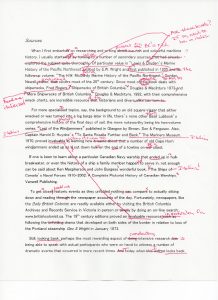Nobody writes perfect prose the first time around. Oh there might be a killer sentence or two but the work will still need editing. That’s what writing’s all about – getting that first draft down and then going back to rewrite and revise…again…and again…and again.
An editor is your ally, not your enemy. They’ll catch the typos, spelling mistakes and awkward sentences and let you know when a passage isn’t clear. They’ll point out repeated words, where you’ve used passive voice and the extraneous bits that need to be cut.
And they’ll nudge you in the right direction when it comes to focus, the concept of “less is more” and opening your piece with something that grabs the reader’s attention.

The first editor is you. It can be difficult to see the flaws in your work but the more you do it the better you’ll get. A good way to learn is by reading similar material with a critical eye. What works? What doesn’t? What makes you want to keep reading? What makes you yawn?
For me the editing process is largely intuitive. I know when something’s not working – not necessarily why – just that it’s not right. Maybe the words don’t flow, the way I’m explaining something is boring or the first paragraph needs to be moved to page three.
Be open to expressing your comments in a different way. Read your work out loud and look at it both on your computer screen and in print. Change, remove, rearrange – it’s all part of the process. Be ruthless, if you have a wonderful sentence, paragraph or chapter but it doesn’t belong in this book, save it for another story.
Eventually someone else needs to edit your writing. I’m lucky. Rick, my partner, is also a writer and we go over each other’s work on a regular basis. Sometimes when he returns a piece it seems like he’s marked it with miles of red ink. But I’m grateful for the feedback.
Although family and friends can be good editors, they’re probably not professional writers or editors. Sooner or later your work needs the skills of someone who understands the writing industry.
If you sign a book contract, most publishers will assign an editor. If you’re self-publishing or want to polish your work before submitting it, you’ll need to hire someone yourself.
Remember, your editor wants the same thing you do: for your book to be the best it can. Chances are, their suggestions will get rid of any glitches and strengthen the plot and narrative.
If you don’t agree with one of their comments, feel free to discuss the pros and cons of making a certain change. Editing is a collaborative process. And one that’s vital if you want your work to shine.
